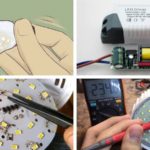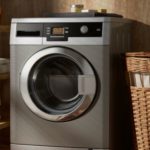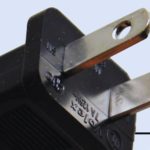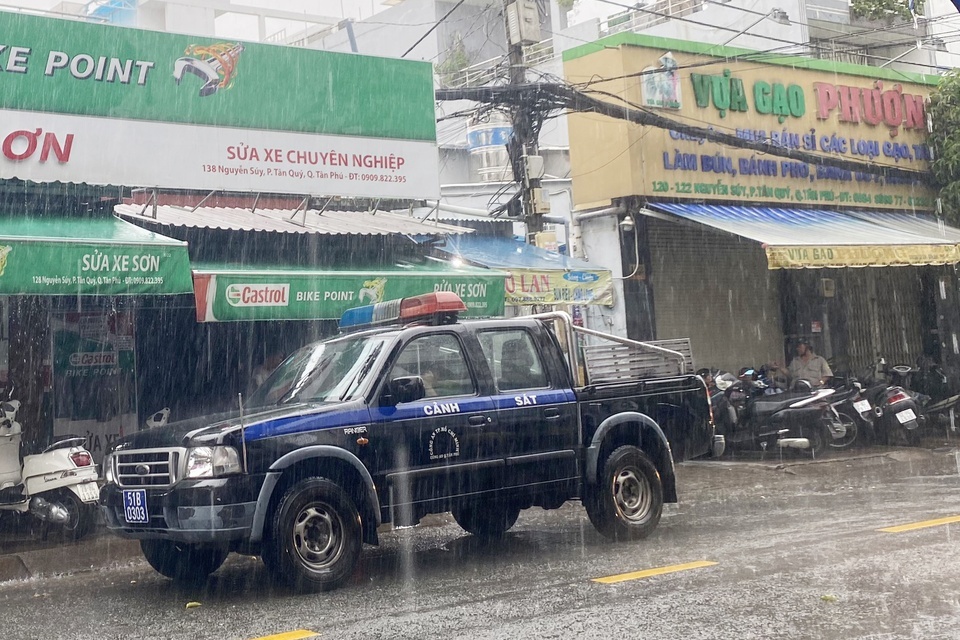
While cleaning up garbage on the roof of a house on Nguyen Suy Street, Tan Phu District, HCMC, the homeowner was electrocuted and died. Image: An Huy.
In the first days of July, there have been multiple cases of deaths due to electric shocks in HCMC during rainy and windy weather.
On July 1, the owner of a house on Nguyen Van Khoi Street (Go Vap District) was repairing the electricity on the rooftop when he suddenly had a convulsion and died, suspected of being electrocuted. It was raining at that time.
On the same day, residents living near the Public Policy and Rural Development School (Ben Nghe Ward, District 1) discovered a man lying still on the school’s metal roof, suspected of being electrocuted.
The next day, a man climbed onto the roof of a house on Nguyen Suy Street (Tan Phu District) to clean up garbage, unfortunately, he died, suspected of being electrocuted. It was raining at the time of the incident.
Le Thi Xuan Lan, former Deputy Head of the Meteorological Forecasting Department of the Southern Region, assessed that HCMC and the Southern Region are currently in the peak rainy season. Therefore, heavy rains like these days will continue to occur.
“The southwest monsoon alone causes disturbances, thundercloud clusters from the sea to form or form directly on land, causing storms, lightning, strong winds, and tornados. When the thundercloud cluster develops strongly, lightning will occur between the clouds,” Lan said.
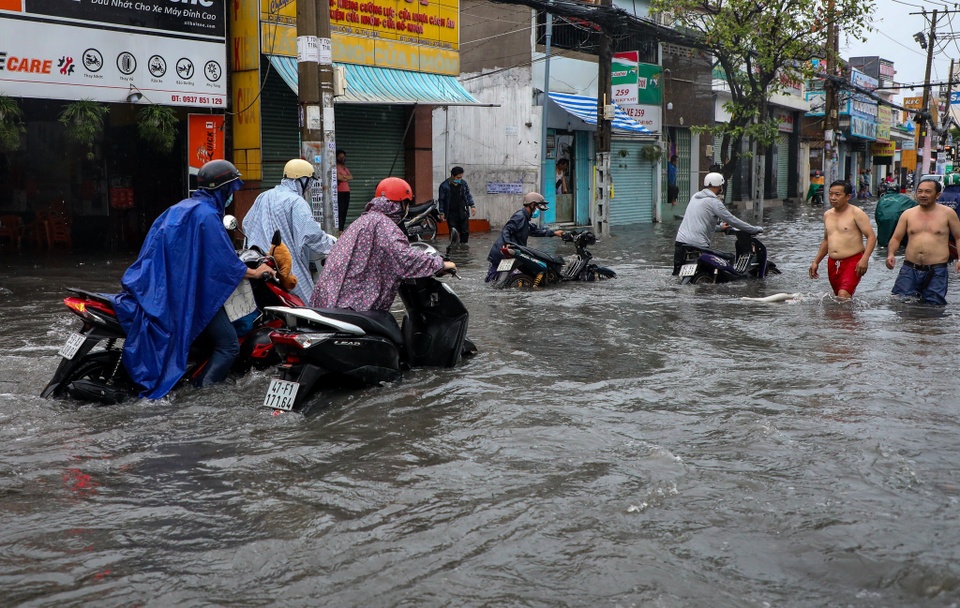
Heavy rains like these days will continue to occur in HCMC. Image: Quynh Danh.
A meteorologist observed that cases of electric shocks during rainy showers often occurred when people went up to the rooftop to take clothes, clean up garbage, repair electricity, etc. During strong winds, electrical wires may sag or break and touch the metal roof, water tank, or TV antenna on the roof. In some cases, the electrical wires may not touch these objects but if they are exposed for a long time and then fall onto a wet floor, they can conduct electricity and cause death.
Lan advises people to avoid puddles, metal objects that conduct electricity, not to climb onto the roof, or use the bathroom during thunderstorms. It is recommended to sit inside the house and wear rubber-soled slippers for insulation.
The HCMC Power Company also advises residents not to stand near power poles, under awnings near substations, touch power poles, ground wires, pole grounding wires, electric meter boxes, switchboards, go to the rooftop or the place where there are power lines, make unauthorized repairs to power lines, outdoor electrical appliances during rain showers.
At the same time, people should disconnect the power supply if the house is flooded or if the floor, power sockets, and electrical devices are wet and at risk of electrical malfunction.
It is also recommended to install electrical wiring, sockets, and electrical devices in the house above the usual flood level, humid environment, and install circuit breakers with insulation features.
During heavy rain and strong winds, people should cut off the power supply to outdoor electrical appliances. It is especially important to stay away from and alert people around when detecting fallen power poles, electrical wires falling onto the road, fields, ponds, lakes,…
The city’s People’s Committee has also directed the heads of departments, agencies, and units to review and take measures to handle branches, branches of tall trees that are prone to falling, especially green trees in school areas, hospitals, parks, residential areas, etc.
During heavy rain and strong winds, it is necessary to evacuate residents (especially the elderly, children, pregnant women, disabled people, and the sick) from temporary houses to safe shelters.
According to Zing
Can You Install a Washing Machine in the Bathroom?
A hotly contested issue, the possibility of installing a washing machine in the bathroom has sparked much discussion about the potential risks and benefits. From concerns regarding water damage to the impact it could have on the longevity of the device, this is a debate with a multitude of angles to consider.
























